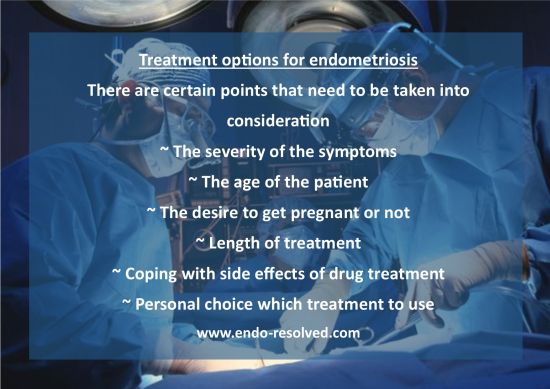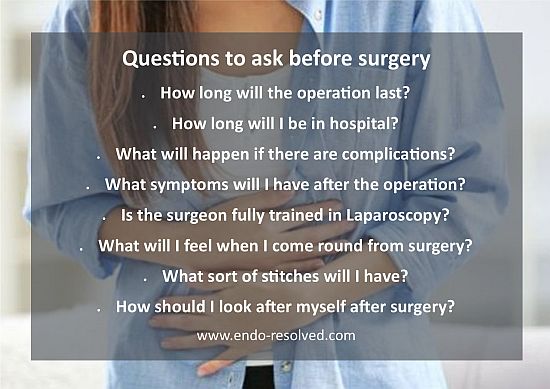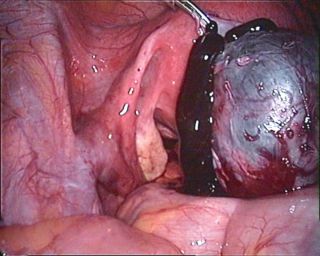Endometriosis Treatment Options
Treatment options for endometriosis need to be considered carefully, and many factors need to be weighed in when deciding which type of treatment plan to follow.
There are a range of
treatments available to women with endometriosis within main-stream medicine. In most cases a woman will have been referred
to a gynaecologist for her treatment, and usually a definite diagnosis will
have been done with the laparoscopy.
Due to the difficult nature of this disease and the different ways it manifests in the body, it can often be difficult to obtain successful or long term treatment success. The
objective of the treatment offered today is to help relieve the pain and
reduce the symptoms. Treatment also aims
to shrink or slow down the endometrial growths, to try and restore fertility
and to delay the recurrence of the disease.
A woman’s treatment
should be decided in partnership between her and her medical advisers. If you do decide to pursue your treatment
with drug or surgical treatment, there will be a number of factors to take into account
when deciding which
treatment path to follow. This will include:
- Severity and type
of symptoms - may
influence your options of treatment.
Some women with endometriosis have little or no symptoms; and no
treatment may be needed. If symptoms are
mild, painkillers alone may be sufficient.
- Hormone treatments are sometimes effective at easing pain but do not
improve fertility. Surgery may be
suggested if infertility is caused by endometriosis.
- Age and plans for
pregnancy - symptoms
often improve during pregnancy. The
longer you have endometriosis the greater the chance that it will reduce your
fertility. Also, the longer you leave
endometriosis unchecked, the more damage it will do, and the more pain it will
cause.
- Success of
treatment and side effects - the hormone treatment options all have similar success rates
at easing pain, but they all have side effects.
Some of these side effects are intolerable by some women and so
treatment may be switched from one drug to another.
- Recurrences - once endometriosis has been cleared
with a course of treatment it may recur again in the future. In fact, in many cases it does recur. A new course of hormone treatment and/or
surgery will have to be contemplated.
- Personal choice -
a woman should
choose for herself which treatment option to take. She should not be coerced into any one type
of treatment because it is the easiest for the physician, or it is the
specialism of the physician.
- Second opinion - It is also
advisable to get a second opinion. You
may get 2 totally different approaches and attitudes to this disease and its
treatment. One physician may be counting
his days to retirement and the other physician may have some personal
experience of the disease.
- Confidence - You need to
feel at ease with you chosen health care provider no matter which field of
medicine they work in. This goes along
way to having faith in the process of healing.
You might like these
Questions to consider asking your surgeon before having surgery for endometriosis
There are various situations where surgery for endometriosis may be needed which are discussed here
Depending on the skills of your surgeon and the level of the disease, there are various surgical techniques for the treatment of endometriosis
Pictures of endometriosis including images of cysts and adhesions taken during surgery
References:
endometriosis.org
webmd.com- endometriosis
Endometriosis-uk.org
Mayoclinic.org - endometriosis
 As featured in:
As featured in:

 As featured in:
As featured in:











